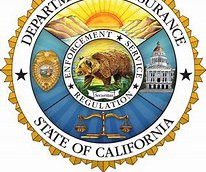The California Department of Tax and Fee Administration (CDTFA) will host its annual Taxpayers’ Bill of Rights Meeting in person on Thursday, Aug. 22, 2024, at 9:30 a.m.
The meeting provides an opportunity for the public to offer ideas and suggestions and discuss CDTFA-administered business taxes, including sales and use taxes and special taxes and fees, such as fuel, tobacco, and cannabis taxes.
“The Taxpayers’ Bill of Rights meeting allows taxpayers to share their concerns, ideas, and suggestions with the Department,” said CDTFA Director Nick Maduros. “We value their input and encourage the public to participate.”
The in-person meeting will be hosted at the California Department of Tax and Fee Administration, May Lee State Office Complex Auditorium, 651 Bannon St., Sacramento.
Those unable to attend in person may participate by telephone or submit comments by email. To participate by telephone during the meeting, dial toll-free 1-844-867-6169, access code 5591625#. Prior to the meeting, a link to view the live webcast will be available at http://www.cdtfa.ca.gov/tra/tbor-meetings.htm.
To learn more about the role of the Taxpayers’ Rights Advocate, the rights provided by the Taxpayers’ Bill of Rights, or to view the Taxpayers’ Rights Advocate’s 2022-23 Annual Report, visit the department webpage. You can also contact the Taxpayers’ Rights Advocate Office at 1-888-324-2798 or email taxpayer.rights@cdtfa.ca.gov for more information.
Enacted in January 1989, the Harris-Katz California Taxpayers’ Bill of Rights ensures that the rights of California Taxpayers are protected during the assessment and collection of sales taxes. The Taxpayers’ Bill of Rights was expanded in 1993 to include special tax programs such as environmental fees, fuel taxes, and tobacco taxes.
The California Department of Tax and Fee Administration administers California’s sales and use, fuel, tobacco, alcohol, cannabis taxes, and other taxes and fees that fund specific state programs. CDTFA-administered programs accounted for more than $96.2 billion last fiscal year, supporting essential local services such as transportation, public safety and health, libraries, schools, social services, and natural resource management programs through the distribution of tax dollars going directly to local communities.





